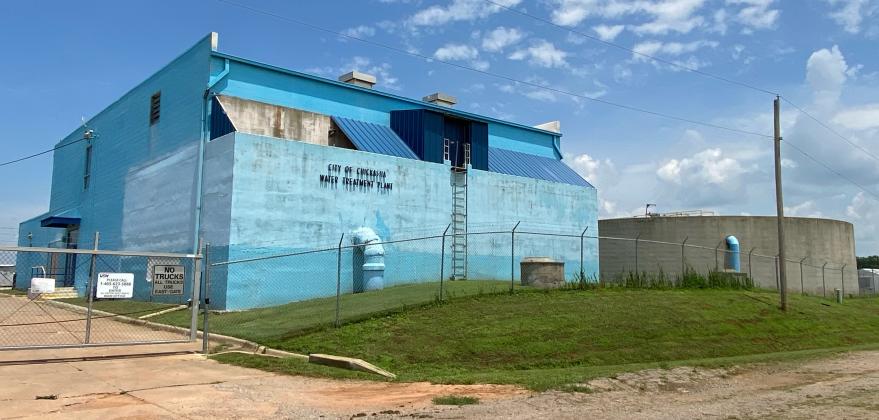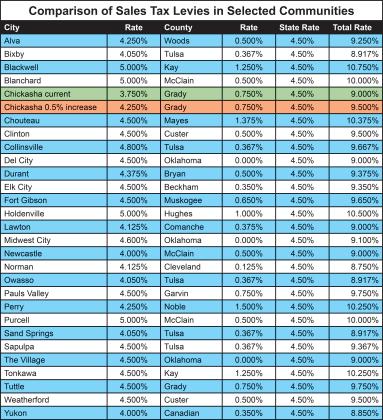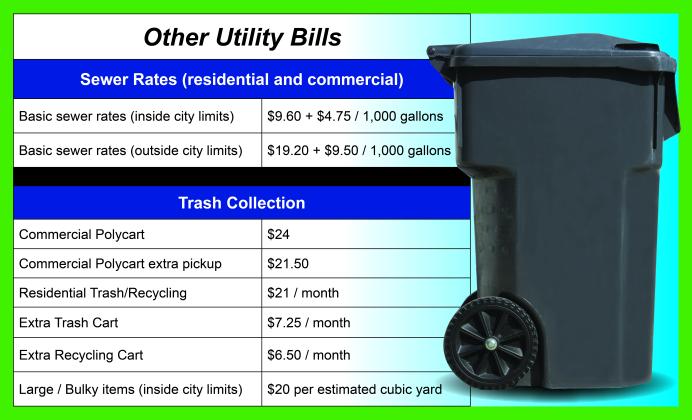CHICKASHA — Engineering firms seeking to work on Chickasha’s proposed new water treatment plant have been given two extra weeks to submit a Statement of Qualifications.
Because of an engineering conference, “several firms asked for extensions,” City Manager Keith Johnson informed the City Council/Municipal Authority. So the deadline was pushed back from May 26 to 5 p.m. June 9.
A selection team will establish a short list of qualified firms, if applicable, by June 16, and interviews with firms on the short list will be conducted the week of June 19. The selection team will pick the winning design firm on June 26.
Authorization from the Chickasha Municipal Authority to negotiate a contract will be requested on July 3, and CMA approval of the contract will be sought on July 17.
The selected design firm will provide all preconstruction services for the project, including but not limited to engineering and other appropriate design of the proposed facility, construction documents for the project, reports and information necessary to obtain the appropriate permits for construction, environmental reviews, reports and plans and construction bid solicitation.
The City Council/Municipal Authority intends to build a new and larger water treatment plant to replace the town’s aged facility that needs several expensive repairs and has trouble supplying current water requirements.
The new treatment plant would cost approximately $70 million and would be financed with the proceeds from a loan that would be retired with a sales tax of 1.25% – a modest half-cent increase in an existing capital improvements sales tax of three-quarter of a penny per dollar – or, in the alternative, a substantial increase in water rates.
Chickasha voters will have an opportunity during a special election Aug. 8 to make their financing preference known.
New water plant cost estimated at $74M
The Chickasha Municipal Authority proposes a new water treatment plant that would be built on an adjacent tract of land off Genevieve Street, and would be capable of producing up to 6 million gallons of potable water daily “with provisions to expand to 8 mgd.” The treatment process would include pretreatment, clarification, filtration and disinfection, the CMA said.
The preliminary estimated cost of constructing a new water treatment plant is $74 million, city officials were told.
Construction of the new water plant probably will take two years to complete, said Allan A. Brooks III, bond counsel with the Public Finance Law Group in Oklahoma City.
Besides the age of the existing water treatment plant and its deficiencies, greater production capability will be expected in the not-too-distant future.
For example, California businessman Chet Hitt has proposed to spend as much as $5 million on various development projects in Old Town Chickasha, including construction of a stillhouse and grill.
The still will produce half a million to a million bottles of whiskey, bourbon and vodka per year, Hitt said. Each of those bottles will contain 750 milliliters of alcoholic beverage, slightly more than the volume of two 12-ounce cans of soda, he said.
The city is unable to pay for a new water treatment plant from its existing revenue streams, Johnson said. Consequently, the Municipal Authority adopted a resolution during a special meeting May 18 that authorized an application to the Oklahoma Water Resources Board for a long-term loan of up to $72 million to finance construction of a new water plant.
“We looked at water usage patterns and your customer base,” which resulted in the projected need for a treatment plant capable of producing 6 million gallons of potable water daily, said Jon Wolff with Municipal Finance Services in Edmond.
Financing options were evaluated
Chickasha officials are considering a loan from the OWRB’s Financial Assistance Loan Program.
Because of its excellent bond rating and its perfect record of no defaults on FAP loans, the OWRB can provide low-interest loans for municipal and rural water and wastewater improvement projects.
Among the OWRB loans closed in a recent issuance, 30.3-year FAP loans commanded an interest rate of 4.46%, Tonya White of the agency’s Financial Assistance Division told Southwest Ledger on June 2.
Chickasha gets its water from Fort Cobb Reservoir in Caddo County and processes it in the Genevieve Street treatment plant. The city’s water bill this year from the Fort Cobb Reservoir Master Conservancy District is $33,841 per month.
Using $5 million from the city’s capital outlay fund would reduce the amount the Municipal Authority needs to borrow for construction of the new treatment plant to about $69 million, said Jon Wolff with Municipal Finance Services in Edmond. The debt service requirement on Chickasha’s loan – the amount needed each year to meet the principal and interest payments – would be approximately $4.1 million annually, he estimated.
“We are not committing 100% of our water revenues to the bonds,” City Manager Johnson assured the City Council/CMA.
Boost sales tax vs. raise water rates
Chickasha has a sales tax levy of three-quarters of 1% which is devoted to capital improvements; that tax is slated to expire at the end of this year. Renewing the levy and increasing it half a percent to 1.25% would eliminate the need to raise water rates, Wolff said.
Any growth in municipal sales tax receipts over the next 30 years could be used to help retire the loan or for other infrastructure needs such as streets, storm drainage improvements, and/or replacing leaking water lines and dilapidated sanitary sewer lines, he said.
If local voters reject the capital improvements sale tax on Aug. 8, water rates would have to be increased 82% to meet the debt service requirement on the loan, city officials were told. Chickasha’s water rates were raised “last summer,” Wolff reminded the council members.
Providing local residents with two options “would allow the voters to decide how they want to pay for” the new water treatment plant, Brooks said. “You put it in the voters’ hands.”
Aged water plant has ‘deficiencies’
The existing treatment plant was built in the 1960s. It was designed to produce 6 million gallons of potable water each day but now “provides a maximum of 4.6 million gallons daily” to Chickasha and the nearby tiny community of Norge, City Manager Johnson said.
According to federal census data, Chickasha’s population has increased by roughly 1,400 residents, to 16,280, in the decades since the water plant was constructed.
“We have some serious issues with our water infrastructure,” Johnson said. “We’re at risk of not being able” to meet demands imposed on the water delivery system. The water treatment plant has several “deficiencies,” he told the council.
U.S. Water Services Corporation manages Chickasha’s water and wastewater treatment plants under a renewed five-year contract first negotiated in 2015. The city pays USW $101,852 each month to operate the water plant, and $60,989 per month to operate the sewage treatment plant.
In August 2020 two district representatives from the state Department of Environmental Quality met with the project manager for USW Utility Group and performed a “sanitary survey” of the Chickasha water plant. Nine violations were identified by the DEQ.
The state agency issued a consent order in December 2021 that directed the Chickasha Municipal Authority to make several improvements to its water plant. Some of those issues have since been resolved but several others still remain, Johnson said.
Violations cited by the DEQ included one-ton chlorine gas cylinders not protected from direct sunlight, the lowside tank vent not properly constructed, and several problems with the Old, the Lower and the Upper clearwells.
(A clearwell is a component of a municipal drinking water purification system. It refers to the final storage stage in the system, after the filtration and disinfection stages. Filtered water is held in a storage basin to allow the disinfectant to inactivate any remaining pathogens.)
Despite the treatment plant’s limitations, the operator, U.S. Water Utilities Group, has made some repairs and even won an award for the Chickasha Municipal Authority.
The city’s water treatment plant was one of 13 in the state that received a Water Fluoridation Quality Award in 2020 from the U.S. Centers for Disease Control and Prevention.
Fluoridation is the adjustment of fluoride in drinking water to a level that is effective for preventing tooth decay. The award recognized communities that achieved excellence in community water fluoridation by maintaining a consistent optimal level of fluoride in drinking water throughout 2019.




